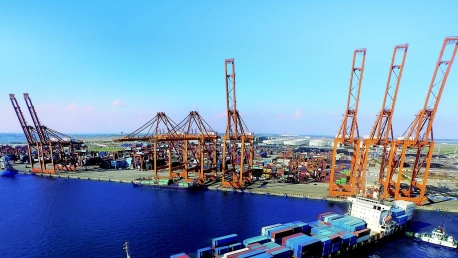Shanghai Zhenhua Heavy Industries (ZPMC), a prominent Chinese port machinery producer, is currently under scrutiny over alleged cybersecurity vulnerabilities. U.S. authorities have raised concerns that ZPMC’s cranes could pose risks if embedded technologies could be exploited for espionage or sabotage. This is against the backdrop of increasing tensions between the U.S. and China over security and technology, with the U.S. government wary of potential backdoors in imported infrastructure.In response to these concerns, ZPMC has vigorously defended its products, stating that their equipment complies with international safety standards and denying any risk to cybersecurity. They assert that the claims are unfounded, built on inaccurate assessments devoid of comprehensive evidence. The company underscores its dedication to conforming to all necessary legal and regulatory measures, aiming to dispel fears about their commitment to cyber protection in Western markets.
ZPMC’s Rebuttal and Industry Impact
The controversy has led to a broader discussion about the security of America’s critical infrastructure. The U.S. government’s actions suggest a move toward decreasing dependence on foreign-manufactured port equipment by supporting the revival of domestic production. This strategy forms part of a wider initiative to reinforce supply chains and safeguard against external threats. Substantial investments are being channeled into developing home-grown alternatives to ZPMC’s cranes.ZPMC’s statement is part of a concerted effort to maintain their position in the U.S. market and reassure customers worldwide. While ZPMC continues to argue against the allegations, the U.S. is taking a cautious approach. As domestic production ramps up, industry watchers remain attentive to how these developments will reshape the landscape of port operations in the United States and whether ZPMC can effectively dispel the cybersecurity concerns that have been articulated.









